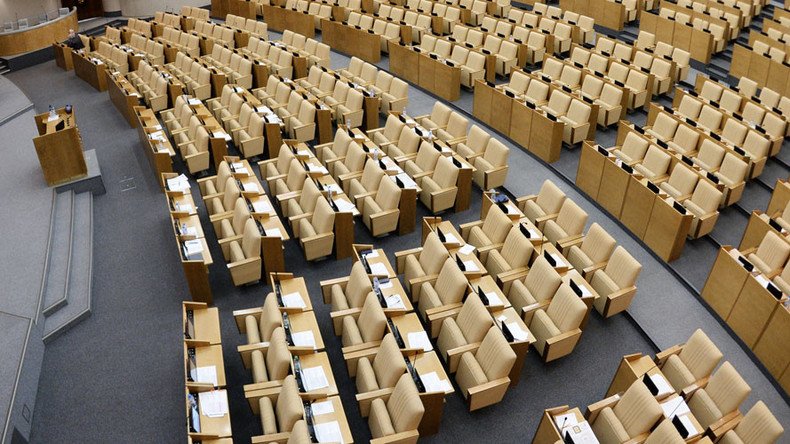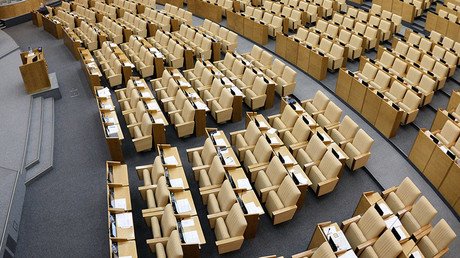Duma approves bill fining lawmakers who miss sessions

Russia’s lower house has passed a motion levying large monetary fines on MPs who miss parliamentary sessions without valid excuses. The same draft orders the names of truants to be published on the parliament’s website.
According to the new rules MPs should register at State Duma sessions. Registrations take place at 10am, 12:30pm and 4pm and the members who participate in none of those on a certain day are considered absent and should be fined one-sixth of their salary (about 60,000 rubles or $920 at current rate). The final decision on imposing a fine is taken by the lower house Regulations Committee and duly published on the State Duma website.
The amount of the fine is explained by the fact that Russian lower house holds six plenary sessions every month.
One of the main sponsors of the motion, Deputy Speaker of the State Duma Sergey Neverov (United Russia) told reporters that the money collected from fines would be returned to the budget of the parliament.
He also added that MPs who are on vacation, sick leave or an official trip connected with parliamentary work would not have to pay fines for missing sessions.
During the debates over the bill, MP Oleg Shein (Fair Russia) suggested that the emerging situation when a member who misses all the plenary sessions in one month and loses all of his or her salary could be interpreted as an assumption that only plenary sessions count as actual work, while other types of lawmaking activities “cost nothing.” To this, Neverov responded that the scheme had been proposed because lawmakers’ attendance can be registered only at plenary sessions.
In October this year, the freshly-elected State Duma passed a set of amendments that changed the voting procedure in the lower house making it impossible for members to vote for each other. While the bill was in the discussion phase, some of its sponsors suggested also introducing monetary fines for missing Duma sessions, but this article was put to a vote only several weeks later, on the initiative of the parliamentary majority United Russia party.
Earlier this month the Public Opinion Foundation research center reported that 90 percent of Russians said that they would support monetary fines for lawmakers who fail to attend sessions without offering valid excuses. (Five percent of respondents were against the measure and another 5 percent said they could not give an unambiguous answer.)
The same poll demonstrated that 79 percent of Russian citizens approved of the obligatory personal voting for MPs. Eighteen percent were against it and 3 percent remained undecided.













